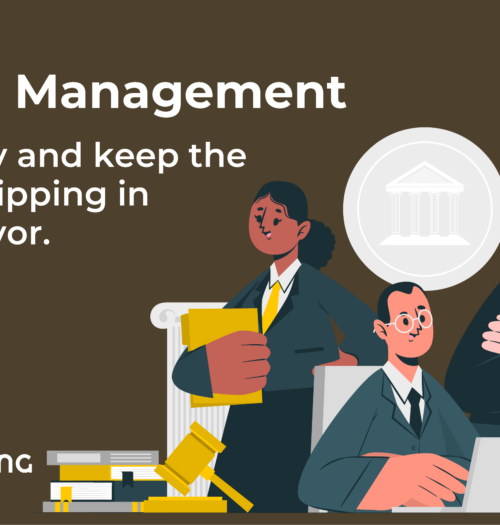Make your transition to legal cloud software smooth

New software implementation may sound challenging and sometimes even tough. But not if you find the right approach to it! In this article, we share essential steps to take, so your transition process is smooth and secure.
- Your first thing to do is market research for all the available options that may suit your business. Make sure that you create a team of stakeholders from the beginning of the process, who will help you with the choice and transition. Think of who will be the first to use the new software and who needs it the most. Ask these people to join you on your way.
- Together with the team, select crucial features that your future software should have. It helps when you have two lists: must-have features and preferred features. This is how you can start your first stage of the selection process, by cutting out those solutions that do not cover the list of must-have features. We recommend you pay attention to cloud solutions at this stage, as they are secure and the most flexible solutions available.
- When the preparation phase is done, do your research, talk to a few providers, and finally chose your perfect software. After it’s done, here comes the most important part – implementation.
- First, consult with your IT unit and examine the scope of data that you will have to transfer. And depending on how big your final amount is, plan the transition period duration accordingly. It’s a common mistake when sometimes management hopes to switch to the new software in a few days. But it actually takes weeks, because the company has thousands of cases to transfer. So just like on stage one, before making the step, evaluate the scale you are dealing with.
- Start by migrating your most essential and recent data, and simultaneously present the new software to your colleagues. Easing the transit process as much as you can is the crucial final part of the whole process because at the end of the day it’s people who will use the new software. And you have to make sure that everyone knows how to deal with it.
- After the transition is done, observe and collect feedback. Take the first month to grind and adapt the solution so that it covers all your needs perfectly. Talk to your provider and bring all your notes to life. And you are all set now! The challenging way is behind, and now you are using most of your workday and new software.
Start your transition journey now with the free guided trial of Rolling Legal! With a personalized approach, your legal case management software transition is even easier.
Related Posts
30 Jan

Cybersecurity Best Practices for Law
Law firms thrive on information, and so do cybercriminals. This



